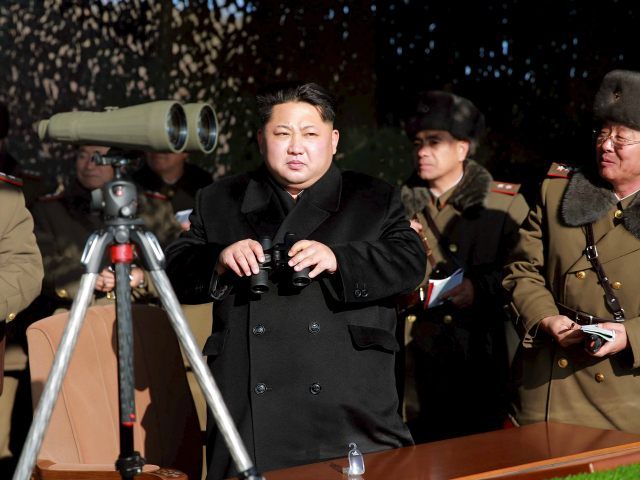North Korea reportedly executed an artillery commander in public in an airfield this week on charges of “insubordination” and “immorality.”
Execution is hardly a novel event in North Korea, and the few details published about this particular incident make it sound less spectacular than some previous killings, but South Korea’s Chosun Ilbo claimed the latest incident “stirred unrest” to an unusual degree without explaining exactly why.
The Chosun Ilbo report quoted Radio Free Asia sources who said the executed officer was “a fairly senior officer and appointed by the party.” He was executed “in front of hundreds of people” to send a message that “corruption will not be tolerated” because it damages socialist ideals.
It is always difficult to get a clear picture of the situation in North Korea, but recent reporting suggests the military is unhappy with dictator Kim Jong-un’s turn away from hyper-militarization in favor of economic development.
A Radio Free Asia report in December found North Korean military officers turning to black market smuggling to augment their diminished income, including drug trafficking – a lucrative opportunity for soldiers because they travel frequently and are not often subjected to searches at rail depots and road checkpoints.
As for the charge of “immorality,” that term could be applied to anything the dictatorship does not like since anything short of energetic support for communism and the ruling family is considered deeply immoral. The North Koreans have lately been purging military officers who use their proximity to the border and access to communications gear to listen to broadcasts from the outside world, including Radio Free Asia.
Chosun Ilbo forwarded some speculation from former North Korean diplomat Thae Yong-ho that dictator Kim Jong-un believes the military grew too powerful and “unruly” after decades of lavish spending and fulsome praise for the armed forces. Kim’s unusual decision to attend a memorial on the seventh anniversary of his father Kim Jong-Il’s death without military officers may have been a signal of his displeasure with the high command.
Other analysts wonder if Kim is growing more worried about rivals for power as sanctions bite deeper into the North Korean economy, or concerned about a military rebellion if he makes major concessions to the United States in nuclear negotiations.

COMMENTS
Please let us know if you're having issues with commenting.